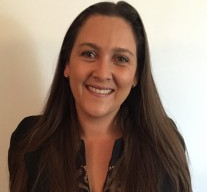
Name: Dr. Julie King
Profession: Clinical Psychologist
Phone: 0414 432 623
Fax: 03 9102 9769
Website: www.juliekingpsych.com
Dr Julie King is a clinical psychologist who offers a range of psychological services. Her doctorate examined the experience of intellectual giftedness as asynchrony. She has worked with the development of youth and antidepressant protocols in general practice. With a passion for increasing resiliency and coping, Julie is intensively trained in DBT for Borderline Personality Disorder.
Julie works with Anxiety & Phobias, Bipolar Disorder, Depression, Mental illness, Obsessive-Compulsive Disorder (OCD), Panic Disorder, Personality disorders , Relaxation, Stress management, Weight management, Eating Disorders, Bullying, Self-harm, Suicide, Assertiveness training, Behaviour problems, Self-esteem & self development, Divorce/separation, Parenting and Relationships.
Julie is an experienced public speaker who has delivered training to mental health practitioners nationwide. Her training workshops have included Advanced Strategies in DBT, Skills Training in DBT, Individual Psychotherapy in DBT, Basic Counselling Skills, CBT, and Suicide Prevention in Schools.
Julie is on the Executive Team of The Australian DBT Institute. You can access that information at www.dbtinstitute.com.au
Julie has presented: Andronaco (King), J. (2015). Risk perception as a mechanism to inform drowning prevention in young males. Paper presentation at the World Conference for Drowning Prevention, Penang Malaysia.
Julie has presented: King, J. (2002). The frequency and impact of client suicide on Australian clinical psychologists. Paper presentation at the 9th Suicidal Prevention Australia National Conference, Sydney NSW.
Julie has recently published: (2019) Experiences of Difference: A Phenomenological Study With Intellectually Gifted Pre-Adolescent/Early Adolescent Boys and Their Mothers, Roeper Review, 41:3, 185-198, DOI: 10.1080/02783193.2019.1622164
Andronaco (King), J.A., Shute, R & McLachlan, A. (2014). Exploring asynchrony as a theoretical framework for understanding giftedness: A case of cognitive dissonance? Roeper Review, 36, 264-272.
